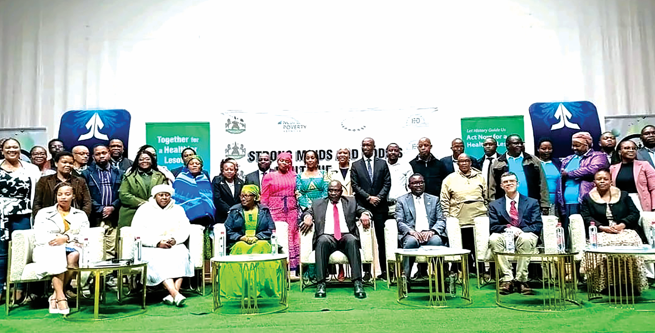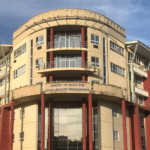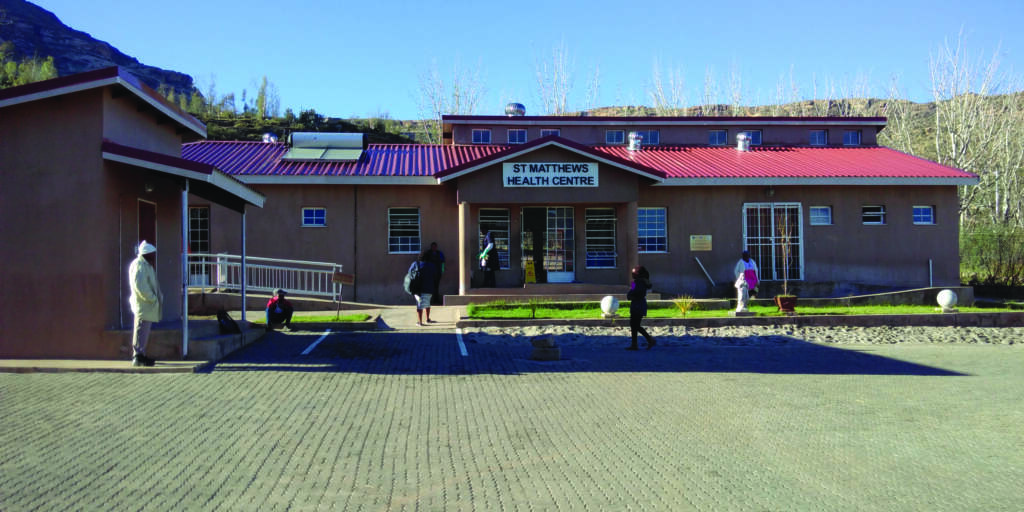Lesotho is in the grip of a severe and growing public health crisis, as non-communicable diseases (NCDs) and injuries claim an alarming share of lives.
Health officials are calling for urgent, collective action to address what they describe as a “silent crisis.”
According to the World Health Organisation (WHO), NCDs accounted for 45 percent of all deaths in Lesotho in 2019, giving the country the highest NCD-related mortality rate per 100,000 people in the African region.
“These figures underscore the urgent need for action, as the burden of NCDs is projected to surpass that of communicable diseases in Africa by 2030,” said Dr. Sirak Hailu of WHO.
Hailu attended the Non-Communicable Diseases and Injuries (NCDIs) Coordination Mechanism – Lesotho meeting, held on Wednesday at the ‘Manthabiseng Convention Centre. The meeting aimed to officially establish the multisectoral NCDI Coordinating Mechanism, raise awareness of NCDIs in Lesotho, and outline a roadmap for their prevention, detection, control, and treatment.
Cardiovascular diseases remain the leading cause of NCD deaths, followed closely by cancers. Road accidents, many linked to alcohol use, rank as the third-leading cause of death.
“Tobacco prevalence in Lesotho is among the highest in the region, exceeding both global and regional averages. This is deeply concerning given its direct link to chronic lung disease, cancer, and cardiovascular conditions,” Hailu noted.
“While alcohol consumption in Lesotho is reportedly below the regional average, its link to road accidents and other injuries remains a serious issue. The misuse of alcohol is a core factor in the high rate of injuries from road accidents,” he said.
He indicated that Lesotho’s physical activity levels are better than in some countries, but obesity is a significant risk factor. “Southern and North Africa have some of the highest rates of obesity, which is a key risk factor for hypertension, cardiovascular disease, and certain cancers,” he said.
He said a 2023 study found that 42.5 percentof adults in a rural Lesotho cohort were overweight or obese, with higher rates among women.
According to Hailu, air pollution has emerged as a significant contributing factor to NCD-related deaths, with six million deaths globally attributed to it.
As Dr. ‘Malitaba Litaba from the Ministry of Health noted, Lesotho has the highest age-standardised mortality rate in the African region.
Hypertension is a major problem, with many deaths resulting from stroke and heart disease.
She believes that by improving hypertension management, the country can significantly reduce NCD-related mortality.
“After cardiovascular diseases, cancer is the second-leading cause of death. This is maybe because it is a screenable and diagnosable disease, leading to better data collection. However, there is also a worrying rise in childhood cancers,” she said.
Road accidents are the third leading cause of death in Lesotho, a factor officials believe is heavily influenced by alcohol abuse.
As Dr. Litaba pointed out, the data show that most injuries from road accidents are linked to alcohol consumption.
In response to this escalating crisis, the government has launched the National Multisectoral Coordination Mechanism for Non-Communicable Diseases, Injuries, and Mental Health.
Minister of Health Selibe Mochoboroane described the initiative not just as a program, but as a “movement to confront a silent crisis”.
He said the initiative aims to unite various government sectors, including health, education, finance, and public works, with civil society, academia, and the private sector.
The strategy, according to the Minister, focuses on tackling the root causes of NCDs through policies on nutrition, tobacco use, and physical activity.
Strengthening primary healthcare services to provide early screening and treatment for conditions like hypertension and diabetes, and raising awareness through media campaigns and community dialogues to encourage healthier lifestyles.
Mochoboroane said the government is taking bold steps, including the construction of a new cancer center and the establishment of the Starlight Houses of Hope, Lesotho’s first palliative care center.
He acknowledged that this crisis is not just a health issue, but a societal one shaped by social, economic, political, and environmental forces.
The program will begin with a stakeholder meeting this month to map resources and co-create national plans for prevention and control.
Meanwhile, it is two weeks to go until the fourth UN High-Level Meeting on NCDs and Mental Health (HLM4), and civil society is urging governments to show leadership and step up investments to tackle the world’s leading health challenges.
The NCD Alliance’s Time to Lead campaign urges countries to prioritise NCDs, including mental health and neurological conditions, close the financing gap and deliver bold commitments at the HLM4 taking place on September 25.
A new landmark report published by the NCD Alliance and authored by a team of researchers at the University of Washington provides clear investment targets to achieve global health and SDG goals.
The report, “Delivering on Health and Financial Protection for All: Government Spending on Essential NCD Medicines and Services”, shows that countries are dangerously underspending on NCDs and outlines how much they must invest to get on track and save lives.
To achieve universal coverage and provide financial protection for NCD interventions, the report indicates that countries should aim to spend 1.1 percent to 1.7 percent of gross national income (GNI) on NCDs through their primary healthcare.
Currently, most countries invest just 0.26 percent to 0.46 percent of GNI, highlighting decades of chronic underfunding.
Summary
- Lesotho is in the grip of a severe and growing public health crisis, as non-communicable diseases (NCDs) and injuries claim an alarming share of lives.
- According to the World Health Organisation (WHO), NCDs accounted for 45 percent of all deaths in Lesotho in 2019, giving the country the highest NCD-related mortality rate per 100,000 people in the African region.
- The misuse of alcohol is a core factor in the high rate of injuries from road accidents,” he said.

Ntsoaki Motaung is an award-winning health journalist from Lesotho, specializing in community health stories with a focus on sexual and reproductive health and rights, as well as HIV. She has contributed to platforms like “Be in the KNOW,” highlighting issues such as the exclusion of people with disabilities from HIV prevention efforts in Lesotho.
In addition to her journalism, Ntsoaki serves as the Country Coordinator for the Regional Media Action Plan Support Network (REMAPSEN). She is also a 2023 CPHIA Journalism Fellow.










